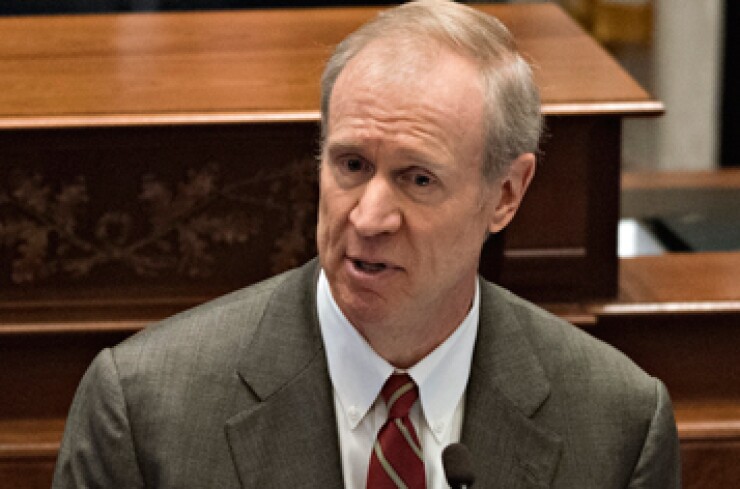
CHICAGO – Illinois lawmakers head into the homestretch of their regular session with growing anticipation for the results of two bipartisan budget working groups trying to reach agreements and break an almost 11-month-old budget impasse.
One group has submitted plans to Gov. Bruce Rauner and the General Assembly's leaders. Lawmakers stress the proposals offer a template for balancing the state's books and by no means suggest an agreement or compromise is close at hand.
The plan recommends that the state raise the income tax rate and extend its sales tax to cover some services to help raise more than $5 billion in additional revenue. The plan also recommends more than $2 billion in spending cuts and pension reforms proposed by Rauner in the fiscal 2017 budget he unveiled earlier this year.
It also recommends borrowing $5 billion and repaying it over five years to pay down the state's mounting bill backlog, which could hit $10 billion by fiscal year's end June 30.
A separate group of lawmakers are also working on a budget plan that is expected to encompass pieces of Rauner's governance and policy reforms outlined in his "turnaround agenda." The Republican governor won't approve any tax hikes unless some of his proposals, like local government union curbs and worker's compensation and tort reforms, are part of a budget plan. Democrats who hold a legislative majority have refused.
"I don't want to get in front of any specific idea yet or comment because it's a little dangerous to take one proposal out of context," Rauner said when asked about the budget recommendations during a public appearance Thursday.
The regular session adjourns May 31. After that, the threshold needed to pass the budget or any legislation that is to take effect increases to a three-fifths majority from a simple majority.
While much of state government continues to function and receive funds through continuing appropriations, court orders and consent agreements, social services and higher education has fallen by the wayside. While the spigot of funding did resume on some higher education aid after a bipartisan agreement was recently reached, social services has continued to languish.
On Thursday, the House and Senate in bipartisan votes approved freeing up $700 million in various non-general fund accounts to cover some overdue payments owed to providers. Its fate is unclear because Rauner did not offer a supportive view of the legislation saying he wants the focus now on reaching a fiscal 2016 and 2017 budget agreement. Rauner could let the bill sit on his desk for 60 days before acting.
"The administration remains focused on enacting a truly balanced budget alongside meaningful reforms and the governor will continue negotiating in good faith toward a bipartisan agreement," the governors' spokeswoman, Catherine Kelly, said in a statement.





